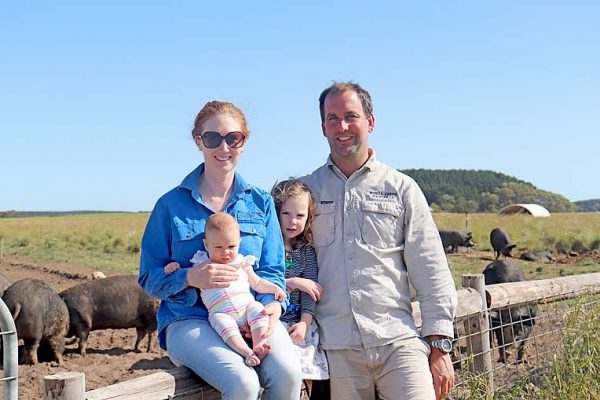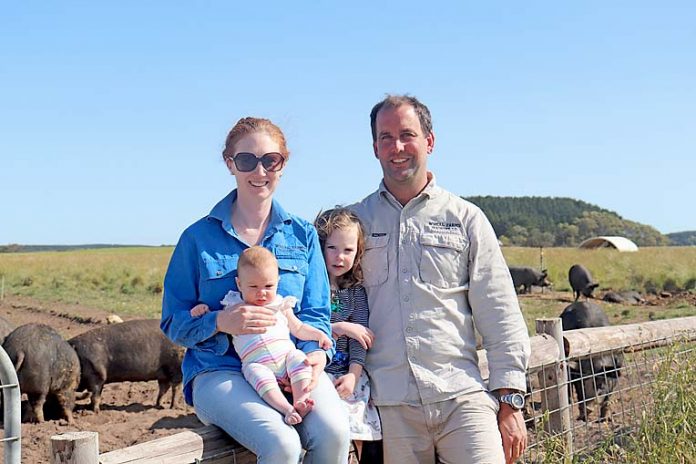
A BEACHPORT pig farmer has warned an outbreak of African swine fever in Australia could decimate the industry, with potential losses to piggeries and pork producers estimated to be in excess of $1b.
Beachport Berkshire owner Mark Wheal said the highly contagious viral disease, which has already killed a quarter of the world’s pigs, would result in devastating losses if it entered the country.
“It would cost piggeries and pork producers $1b in revenue,” he said.
“If you consider other industries associated with pork products, such as abattoirs, smallgoods production and retail, that’s easily $3-4b dollars worth of damage.”
The exotic disease affects both domesticated and wild pigs, spreading rapidly through contact with infected animals or contact with contaminated pens, trucks, clothing or feed.
It has no vaccine and kills 80pc of the pigs infects.
While Australia is currently free of African swine flu, the disease was detected in East Timor in September.
Mr Wheal said the biosecurity of Australia’s pork industry was vital considering African Swine Fever decimated the pork industry in China and was detected just 700km shy of Australia.
“It is not a matter of if but a matter of when and how it can be contained,” he said.
“As a licensed piggery we get information from Primary Industries and Regions South Australia (PIRSA) and Australian Pork Limited on correct practices for our livestock and as part of our Free Range Certification we already have biosecurity measures in place that control who and what comes into contact with our pigs.
“It does not mean there are people out there who are not breaking the law, particularly when it comes to swill.”
Mr Wheal said swill feeding was one of the leading causes for the virus spreading through Asia as pigs consumed pork products from other pigs infected with disease.
“If you have a cafe giving scraps to piggeries, how can you guarantee there is not any bacon in it, or it has not touched meat products?,” he said.
“Pork needs to be cooked about 70C for over half an hour to kill the bacteria of African Swine Fever – nobody is going to do that.”
Mr Wheal said although he was unable to control what is being done in other farms, he was proactive in enhancing biosecurity measures on his property.
He engages a vet to conduct an autopsy if one of his pigs die in suspicious circumstances and sends the biological matter to a lab in Geelong.
Mr Wheal said other methods of passing on African Swine Fever include via wild pigs, bacteria on people’s clothing and shoes and via waterways.
However, the disease has meant there is demand for Australian beef and lamb exports.
Mr Wheal said there was a shift and consumers were more aware of buying Australian pork products.
“Pathogens of African Swine Fever could potentially last in an infected site for five to 10 years and so there may be long-term trade opportunities into Asia,” Mr Wheal said.
“Until recently, 80pc of ham, bacon and other smallgoods sold in Australia were made here from imported pork, but due to there being less pork available globally the import level has dropped to about 50pc.”
PIRSA are closely liaising with Pork SA to ensure South Australian pork producers are up to date on this emerging disease threat and reminding them of the importance of heightened on-farm biosecurity practices.
The department said it has been illegal to give swill to pigs for three decades.
The Federal Agriculure Department also maintains strict controls over imports of products that could be contaminated with the virus and has increased screening for banned pork products at the border.
Pig owners are urged to be alert to signs of ill-health and immediately contact a private veterinarian or the Emergency Animal Disease Watch Hotline on 1800 675 888 if African swine fever is suspected.








